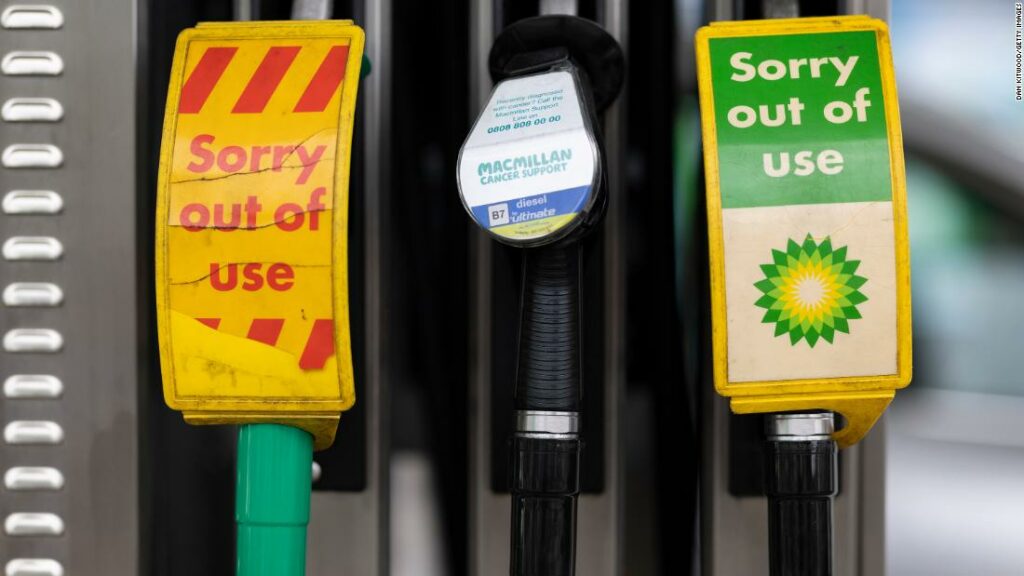Brits line up for gas as BP closes some service stations

The Automobile Association (AA) appealed for calm on Friday as drivers in some parts of the United Kingdom flocked to gas stations. “There is no shortage of fuel and thousands of [stations] are operating normally with just a few suffering temporary supply chain problems,” AA President Edmund King told CNN Business. He warned drivers against filling up “outside their normal routines” as “even if the occasional petrol station is temporarily closed, others just down the road will be open.”Yet some Brits paid little heed as the weekend approached, with Shell warning of long lines at stations.”We are seeing an increased demand today for fuel at some of our stations, which may in some instances result in larger queues. We are adapting our delivery schedules to ensure sufficient supplies for our customers,” Shell said in a statement.Worker shortages are a growing problem in Britain, which had a record 1 million job vacancies between June and August, according to the Office for National Statistics. The shortage of truck drivers has been exacerbated by the pandemic and This is the second time in as many months that BP has had to temporarily shutter some UK locations because of problems distributing fuel due to a lack of truck drivers. According to the Road Haulage Association, the United Kingdom is short around 100,000 truck drivers, 20,000 of whom were EU nationals that left the country after Brexit.Esso owner ExxonMobil (However, Transport Secretary Grant Shapps did not rule out issuing short-term visas to EU drivers on Friday.”I’ll look at everything and we’ll move heaven and earth to do whatever we can to make sure that shortages are alleviated with HGV [Heavy Goods Vehicle] drivers,” he told Sky News in an interview.It’s not just truck drivers. The food and farming sector estimates that there are 500,000 vacancies across the industry, which is leading to food waste because there are insufficient workers to pick, pack, process and transport fresh produce.Groups representing the food and farming sector on Wednesday called on Prime Minister Boris Johnson to implement a “Covid Recovery Visa” to alleviate what they described as “crippling labor shortages across the supply chain.”— Charles Riley and Lauren Gunn contributed reporting.







